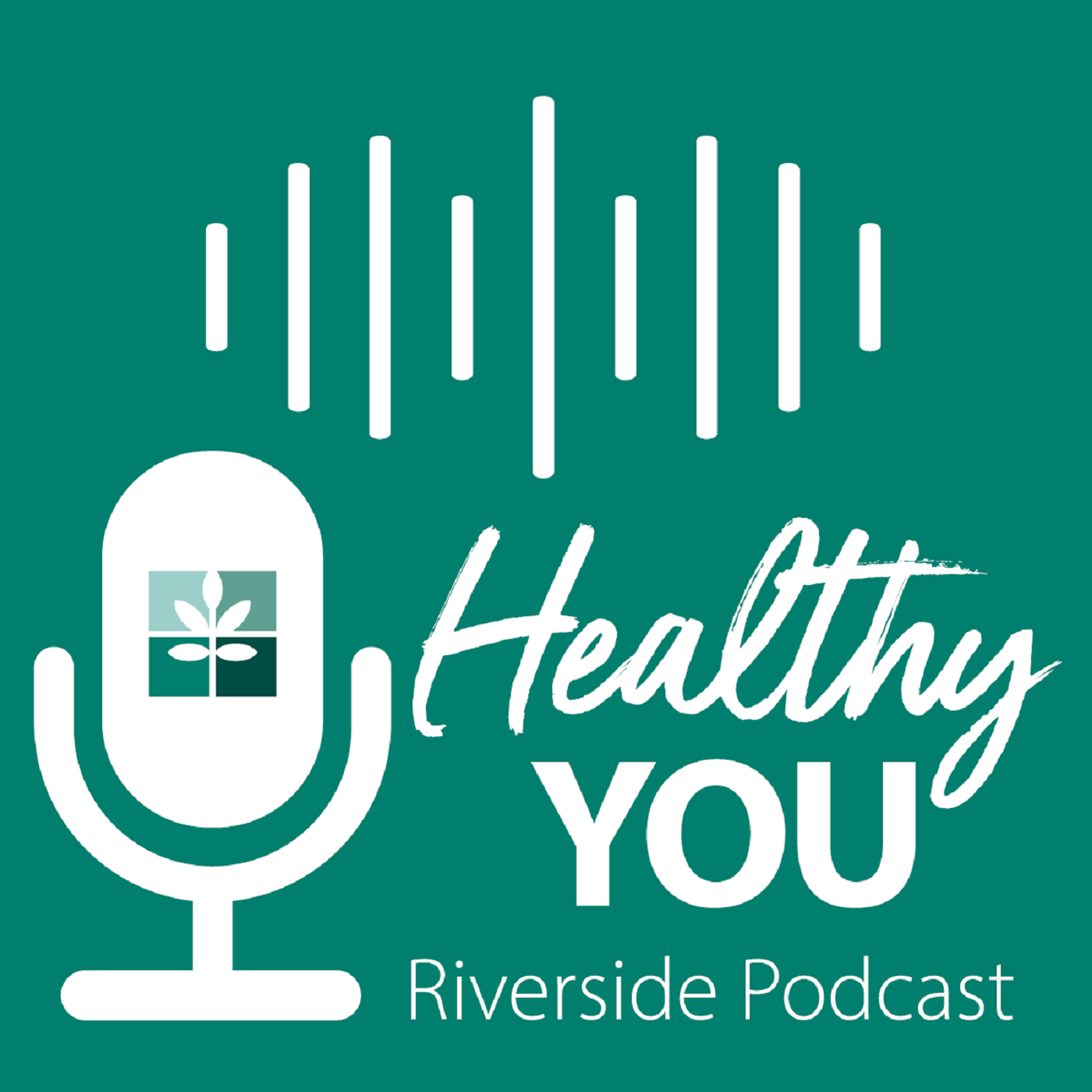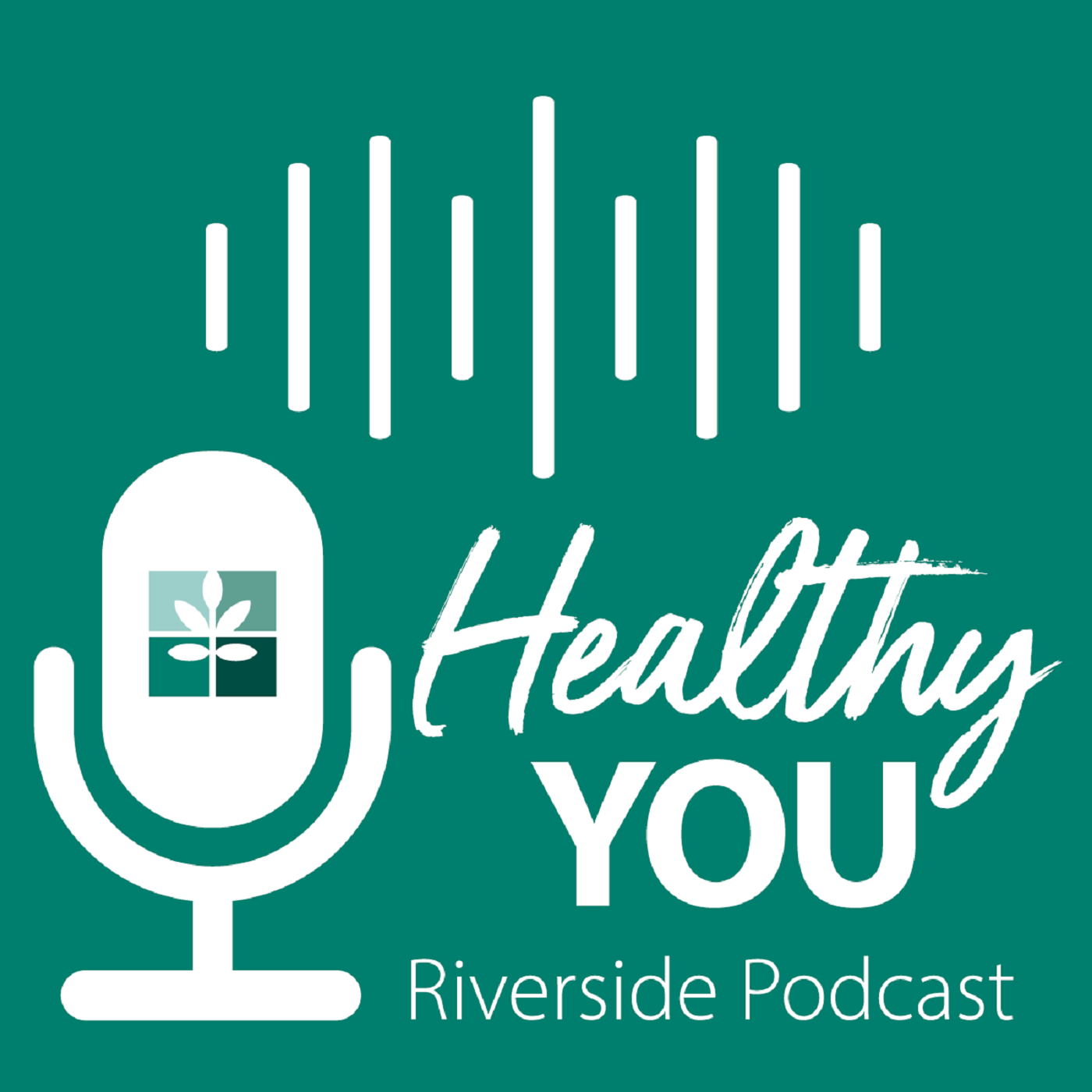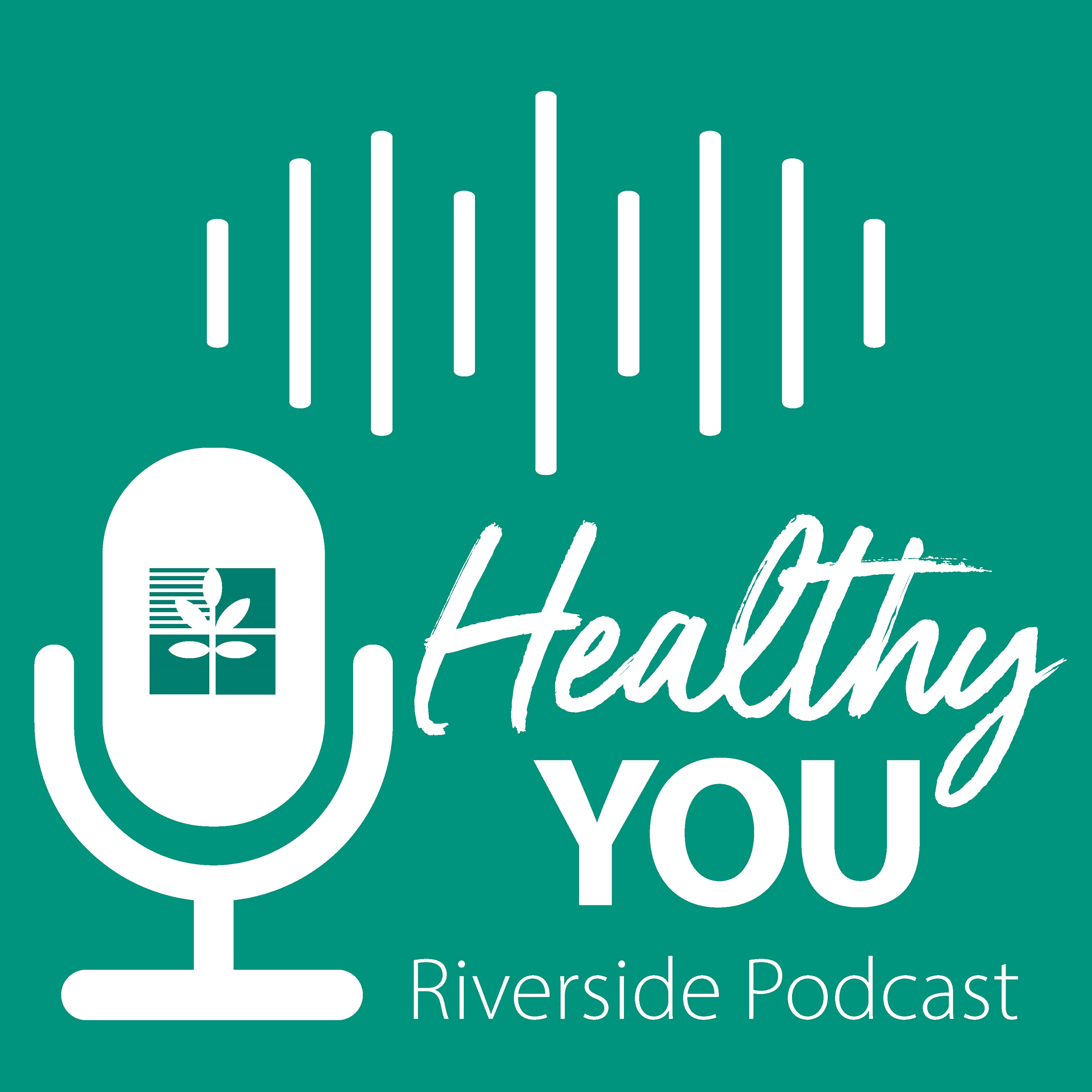Episode Transcript
[00:00:00] Speaker A: From Riverside Health System. This is the Healthy youy Podcast where we talk about a range of health related topics focused on improving your physical and mental health. We chat with our providers, team members, patients and caregivers to learn more about how to maintain a healthy lifestyle and improve overall physical and mental health. So let's dive in to learn more about becoming a healthier you.
Welcome to the Healthy you Podcast where we explore health conditions, treatments and everyday ways to care for your mind and body. I'm your host, Frankie Myers and today's episode is a very special one. Because it kicks off National Mental Health Awareness Month which takes place in May.
We're diving into a topic that affects more people than you might realize. Trauma is is that thing. Whether it stems from a single event or long term experiences, trauma can have lasting effects right on both our mental and physical health.
Joining me today to walk us through the journey of healing is Melanie Galloway, a licensed clinical social worker and the clinical director at Riverside Mental Health and Recovery Center. Welcome.
Melanie has spent years helping individuals navigate trauma recovery, build resilience and find hope. And we're excited to have you with us today. Today.
Thank you so much.
Tell me a little bit about how you ended up in this particular field.
[00:01:34] Speaker B: So I knew in ninth grade and high school that I was going to be a social worker. So ever since that has been my path and for many years. And I am now a clinical social worker.
[00:01:46] Speaker A: Okay. So my grandmother was a nurse, so I knew since five that I wanted to be a nurse. So there's something to be said about manifesting or claiming that. Was there something that sparked your interest?
Was it sociology, the classes?
[00:02:01] Speaker B: Well, actually it was in school when you take the testing and what you want to be when you grow up kind of thing. And I scored the highest in that and so short profession came up and I took it from there.
[00:02:14] Speaker A: Okay. Okay. I remember taking that test as well. And mine came up healthcare.
All right, awesome. Let's start with the basics.
What is trauma and how does it show up in people and does it vary and what's the both mental and physical aspects of trauma that you may see?
One may see? Absolutely.
[00:02:36] Speaker B: For trauma, it's a psychological and emotional response to a distressing experience.
It can be through abuse, loss, grief, community violence, an accident, three different types of trauma. There's acute, chronic, complex, different types of trauma and symptoms that come from that could be anxiety disturbances in your sleep, physical pain, hyper vigilance, or even emotional numbness.
[00:03:08] Speaker A: Okay. So often when you think about trauma, you hear it more often like in military, like ptsd.
But you don't always hear about it in some of the ways that you just described things that could cause trauma.
So that's really helpful.
It's powerful to realize how deeply trauma can impact someone and even years after that experience.
So talk a little bit about that then. I also want to know, you know, certain things, you know, habits that you grow up having or you may experience in your adult life.
Some of those things could be stem from trauma as well, right? Like compulsive behaviors as well.
[00:03:56] Speaker B: So, yes, and trauma can be invisible on the outside. It often goes unrecognized and untreated.
And sometimes we're not aware that people have experienced trauma and what they're going through, and it's silent, but they still. We want to be able to provide support and help people through these experiences.
[00:04:16] Speaker A: Okay, Melanie, I'd love to talk a little bit more about how trauma shows up differently across ages and even genders, because I would think that it may potentially show up differently in those things.
How does trauma impact adolescents differently from adults?
[00:04:37] Speaker B: There is a major difference between adolescents and adults. Adolescents are still developing neurologically, cognitively, emotionally, and they could have a more sensitive response to a traumatic stress event.
The way they display it or the behaviors come out in adolescents can be very different than that of adult. It can disrupt their brain development, their identity formation, their school performance, their relationships at home, in the community and at school.
Adults, on the other hand, sometimes have a little bit more coping skills or tools that they're able to face the trauma, but in different forms. It might be through loss, chronic stress, ptsd, or from an earlier event in their childhood as well.
[00:05:20] Speaker A: Okay, that's really important information and I think helps add some clarity when understanding presentation between those different groups.
So the same event could affect a teenage and an adult and be totally different in presentation. Are there some examples for our viewers that if you're trying to navigate this between an adult and an adolescent and.
[00:05:47] Speaker B: Recognizing it sometimes through adolescence, there may be perfectly fine at home, but having acting out behaviors at school, there couldn't have been a traumatic event that happened at school or they've experienced, and that's where it is exacerbating itself or where it's coming out.
It could be trouble concentrating. That could also be with adults as well, not just adolescents, but with our adults, it could be more internal, more quiet.
Depression, physical symptoms, physically not wanting to get out of bed in the morning could present itself very differently from an adolescent or an adult.
[00:06:28] Speaker A: Yes, and I would imagine caregivers and parents play a big role in helping teens process and heal. I know from a parent perspective, it's how important it may be to seek professional support because it's hard to support adolescents sometimes when they're misbehaving.
And to be able to manage that if you don't have the skills and tools, does that make sense?
[00:06:57] Speaker B: Absolutely makes sense. And having a trusting adult, a person that is able to listen, doesn't have judgment and able to seek out that support.
As a parent, it's easy. You know, it's not as a therapist or clinician, it's easy for me to help, provide the structure and the guidance to protect somebody. But as a parent, it's all out the window. It's a little different.
[00:07:18] Speaker A: It is very different when it's your.
[00:07:19] Speaker B: Child or a family member. So to not pass that judgment, be okay to reach out for help.
[00:07:25] Speaker A: I think as a parent, just coming from my own perspective, you may perceive it as being a failure and trying to manage it and navigate it. But to your point, the professionals may be the best to get the best result.
What does the healing process look like from trauma typically? What does that look like?
Is there a normal path or a timeline, or is it across the board? It's individualized.
[00:07:56] Speaker B: Individualized. It's not linear. Everybody deals with it differently. You can have ups and downs and that's a normal part of the healing.
It's important to give yourself permission to go at your own pace where somebody else may have experienced trauma and be able to come right back and other people may not, they may be stuck, and that's okay. And just to understand that you take your own pace and have patients seek therapy, their support systems, physical care are key elements in helping get through that.
[00:08:32] Speaker A: Okay.
And also I would think that education and training would be important for healthcare professionals and clinicians to understand and identify trauma. Because I would think that if you don't identify, you can't help navigate individuals to receive the support and resources that they need.
[00:08:54] Speaker B: A lot of people in the healthcare profession and here at Riverside, we are trauma informed care and we're able to help identify it. Even though we might not be able to provide interventions, we're able to refer or get them to somebody that can help them.
[00:09:08] Speaker A: And there are other resources in the community as well.
Absolutely. That can help as well. And I even hear it in academia and then the school systems now that they are putting resources and educating their faculty and teachers to be able to identify as well, because they may be treating the misbehavior but may not understand where was stemming the misbehavior. Correct.
[00:09:34] Speaker B: And a lot of them are using evidence based and using a trauma informed practice to do that.
[00:09:40] Speaker A: So. Good. That's great information. So for listeners who may be dealing with trauma but haven't sought help yet, how do they know it's time to reach out and what can they expect when they present with this presentation? When they present with having trauma, if.
[00:09:58] Speaker B: You'Re having the constant anxiety, emotional outburst, or you're isolating or like I said before, just that, not even wanting to get out of bed, not wanting to go to work, not wanting to do the daily things that you used to enjoy doing, that may be the time, maybe the time.
[00:10:14] Speaker A: So I would think that there. And we talked about.
It's not all linear, but someone could be experiencing trauma, but may not have those more severe symptoms, but are having trouble emotionally, in relationships or even physically, but not to that extreme.
So, you know, I know, I know we say reach out for help, but there may be earlier signs that you may have some sort of latent trauma. Right.
That it's better for you to seek help right before you get to that point.
[00:10:54] Speaker B: Yes.
[00:10:54] Speaker A: Right. Like counseling is okay. That's something. Therapy and going into counseling early, encouraging. You see people doing that early as opposed to waiting until they have those.
[00:11:07] Speaker B: Severe symptoms and prevents preventative like care.
So your mental health is just as critical as your physical health.
So I take a blood pressure medicine in order to help regulate that. It is no different than me seeing my therapist once a week to be able to help regulate my emotions and help me be able to be function.
[00:11:25] Speaker A: All right. It sounds like the first step is often probably the hardest is, you know, admitting it and identifying that you need support.
I would think what's your.
[00:11:37] Speaker B: I think that's one of the bravest and healthiest things that you can do for yourself.
[00:11:42] Speaker A: One thing that surprises people is how trauma lives in the body.
And can you talk a little bit about how trauma affects physical health a little bit more and how we can support recovery holistically, mind, body and soul. Right.
[00:12:01] Speaker B: Yes. It can show up through digestive issues, sleep problems, pain, fatigue.
And there's many different things you can do. Yoga, deep breathing, mindfulness, grounding techniques. It is your whole body, not just the mind.
[00:12:19] Speaker A: So some of the digestive. Do you think some of the more severe digestive ulcers, stress, all of those things you think could be. Could potentially be stemming from some sort of trauma?
[00:12:30] Speaker B: Yes.
And stress as well?
[00:12:33] Speaker A: Yes. Yes. Okay.
All right.
The connection between Mind, body is extremely important, I would think, and something we don't always pay attention to. We think. I mean, I know being a woman, a mom, and having a lot of responsibility, sometimes you just think it's just normal exhaustion or just, you know, you're doing too much and not prioritizing yourself, so.
[00:12:59] Speaker B: And we can't heal our mind without caring for our entire body as well.
[00:13:02] Speaker A: Right, right, right. Okay, let's talk about resilience.
And I love that word, just because, you know, that's the ability to kind of bounce back. Right.
And press through. What does it mean? And how can people build it after experiencing trauma?
[00:13:19] Speaker B: And it is what you just said, the ability to come back, to be able to bounce back, to rebound from whatever event or situation it may happen.
[00:13:28] Speaker A: It.
[00:13:29] Speaker B: You can strengthen and learn through your therapy, social connections, spirituality, your mindfulness. And also, one of the big things is learning to set boundaries and celebrate your small wins.
[00:13:41] Speaker A: Are there support groups?
[00:13:44] Speaker B: There are all kinds of support groups.
[00:13:45] Speaker A: There's support groups, and those are things that I think are important for others to know that exist, that there may be other people dealing with the same thing. I know there's different organizations that have different support groups, and I'm sure within mental health and recovery, we have those things. So I think it's good for the viewers to understand that those things exist. You're not alone, and it's good when people see others that are dealing with the same challenges. So I don't know if you want to talk a little bit about that.
[00:14:14] Speaker B: There are plenty of resources out there in our community as well as within our health system here, and even through Riverside Mental Health and Recovery center, we're able to provide the support and the services and connect. And if we don't have it, we help find it and connect it to where they can get it.
[00:14:31] Speaker A: That's good. That's good.
So as we kick off Mental Health Awareness Month, what message would you like to share with our listeners and viewers who may be struggling or know someone who may be struggling?
[00:14:44] Speaker B: You're not alone, and it is okay to seek help and say, I need a timeout. I need some support. I need to help get through this and to be patient with yourself.
And it's going to. It could take time, and that's okay. And there's people here to help and support.
[00:15:03] Speaker A: Yeah, I think that's the biggest part. You're not alone, and there is support in this podcast is so important in helping to get information out there to their fingertips when they need it. So that's such a powerful reminder.
And for those who are supporting a friend or loved one through trauma, what's the best way to be there for them?
[00:15:27] Speaker B: To just be there, be supportive, pass no judgment, just to listen.
[00:15:31] Speaker A: Okay, I like that. That's great.
For our listeners, how can they reach out to you or someone within mental health and recovery if they've identified for themselves or know someone that they want to link to these Resources the Resources.
[00:15:50] Speaker B: The Riverside Mental Health and Recovery center we provide a continuum of care both on the outpatient side as well as the inpatient side. If it is to the point where there's crisis, we have our psychiatric emergency department that is there we are 24 hours, seven days a week. We're able to receive support and if a patient or a person needs to be admitted for crisis care, we're there for them. If they're not, we're able to refer them to outpatient services, individual therapies, groups, partial hospitalizations, intensive outpatient. We were able to provide every level of care and also refer out to our community for the support of anything they may need.
[00:16:29] Speaker A: Well, Melanie, thank you so much for joining me today. Thank you to you and your team and the commitment of the Mental health and recovery hospital programs that are going above and beyond every day to support and meet the needs of the community and sharing your expertise, your heart with our listeners today.
I can't think of a better way to kick off Mental Health Awareness Month. Anything you want to add before we wrap up? Thank you. Thank you again.
[00:17:00] Speaker B: Thank you just so much for allowing us to speak about mental health and the services and how we're here to.
[00:17:05] Speaker A: Help support our community and to our listeners, thank you for being here. If this episode resonated with you, please consider sharing it with someone you care about. Let's keep the conversation going and help make mental mental health a priority all year long. Don't forget to subscribe to Healthy youy wherever you listen to podcasts. And remember, healing is possible and help is always within reach. Until next time, stay healthy. Thank you for listening to this episode of Healthy you. We're so glad you were able to join us today and learn more about this topic. If you would like to explore more, go to riversideonline.com.


